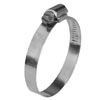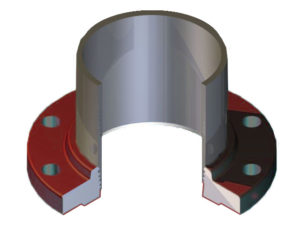Not sure what material is best for your application?
Contact an Expert
Search By Material
Search By Application
Category Archives: Lightweight
Posted on April 23, 2024 by Kathleen
Q: What makes Titanium fasteners per ASTM B348 unique? A: ASTM B348 is a specification that applies to pure titanium grades 1-4 as well as alloyed grade 5 and 23 titanium. The spec refers to requirements for hot or cold worked bars from which bolts and threaded rod are made. Titanium bolts per … Continue reading →
Posted in Application, FAQs, High Strength, Lightweight, Material, Specialty Metal Fasteners | Tagged astm B348, astm B348 bolts, astm B348 screws, astm B348 titanium bolts vs standard titanium bolts, B348 bolts, titanium B348 vs standard grade titanium, what makes titanium astm B348 different, what makes titanium astm B348 unique, what makes titanium B348 unique, why is titanium astm B348 different than standard titanium, Why is Titanium ASTM B348 unique | Leave a comment
Posted on February 12, 2024 by Kathleen
Q: Why is Aluminum 7075 often used for aircraft? A: There are many grades of aluminum bolts but those categorized under grade 7075 are specifically used for aerospace and other high stress structural applications that require a combination of strength and extreme light weight. Grade 7075 can be tempered to different conditions, … Continue reading →
Posted in Application, FAQs, High Strength, Lightweight, Material, Specialty Metal Fasteners | Tagged aluminum 7075, Aluminum 7075 bolt strength and density, aluminum 7075 bolts, aluminum 7075 nuts, aluminum 7075 screws, aluminum 7075 studs, aluminum 7075-T6, aluminum 7075-T6 bolts, aluminum 7075-T6 nuts, aluminum 7075-T6 screws, aluminum 7075-T6 studs | Leave a comment
Posted on February 12, 2024 by Kathleen
Q: How does Aluminum 7075 compare to titanium grade 5? A: Aluminum 7075 can be tempered to many different strengths. The strongest being T6 which not only offers the highest strength. The primary drawback being that it also has low fracture toughness. Aluminum 7075-T6 bolts offer more strength than grade 2 titanium, … Continue reading →
Posted in Application, FAQs, High Strength, Lightweight, Material, Specialty Metal Fasteners | Tagged Aluminum 7075 bolts vs titanium grade 5 bolts, Aluminum 7075 screws vs titanium grade 5 screws, Aluminum 7075 vs titanium grade 5, Aluminum bolts compared to titanium bolts, Aluminum bolts verses titanium bolts, Aluminum bolts vs titanium bolts, Aluminum screws compared to titanium screws, Aluminum screws verses titanium screws, Aluminum screws vs titanium screws, Aluminum verses titanium, Aluminum vs titanium | Leave a comment
Posted on September 22, 2021 by Kathleen
Q: Can you suggest a different material with similar strength-to-weight ratio as the 7075, that can be produced with a diameter M3-0.5? A: Since an M3 bolt is too small to be produced from Aluminum 7075, I would suggest either grade 2 titanium bolts or grade 5 titanium bolts. For … Continue reading →
Posted in Application, FAQs, High Strength, Lightweight, Specialty Metal Fasteners, Technical Questions | Tagged Grade 2 titanium bolts compared to aluminum 7075 bolts, Grade 2 titanium screws compared to aluminum 7075 screws, Grade 5 titanium bolts compared to aluminum 7075 bolts, Grade 5 titanium screws compared to aluminum 7075 screws, Titanium bolts compared to Aluminum bolts, titanium fasteners compared to aluminum fasteners, titanium grade 2 bolts compared to aluminum 7075 bolts, titanium grade 2 fasteners compared to aluminum 7075 fasteners, titanium grade 2 screws compared to aluminum 7075 screws, titanium grade 5 bolts compared to aluminum 7075 bolts, titanium grade 5 screws compared to aluminum 7075 screws, Titanium screws compared to aluminum screws | Leave a comment
Posted on May 21, 2021 by Kathleen
Q: How does titanium compare to Aluminum 7075 in terms of strength and density. I need a really strong material with a low strength to weight ratio. A: A titanium bolt will be more dense than an Aluminum 7075 bolt with a density of 4.51 g /cm3 compared to 2.81 … Continue reading →
Posted in Application, FAQs, High Strength, Lightweight, Material, Specialty Metal Fasteners, Technical Questions | Tagged Aluminum 7075 bolt strength and density, Aluminum 7075 bolts strength and density, Aluminum 7075 screw strength and density, Aluminum 7075 screws strength and density, Titanium bolt compared to Aluminum 7075 bolt, Titanium bolt vs Aluminum 7075 bolt, Titanium bolts compared to Aluminum 7075 bolts, Titanium bolts vs Aluminum 7075 bolts, Titanium screw compared to Aluminum 7075 screw, Titanium screw vs Aluminum 7075 screw, Titanium screws compared to Aluminum 7075 screws, Titanium screws vs Aluminum 7075 screws | Leave a comment
Posted on May 3, 2021 by Kathleen
Q: I’m working on a medical prototype that requires a strong bolt that is biocompatible. I know I want titanium but not sure which grade is adequate for medical use. A: Typically medical grade titanium screws are produced from grade 23 or TI 6AL-4V ELI or grade 5 6AL4V. A … Continue reading →
Posted in Application, FAQs, High Strength, Lightweight, Specialty Metal Fasteners, Technical Questions | Tagged 6AL4V bolt, 6AL4V bolts, 6AL4V screw, 6AL4V screws, Grade 23 titanium bolt for medical, Grade 23 titanium bolts for medical, Grade 23 titanium screw for medical, Grade 23 titanium screws for medical, Grade 5 titanium bolt for medical, Grade 5 titanium bolts for medical, Grade 5 titanium screw for medical, Grade 5 titanium screws for medical, Medical grade titanium bolt, Medical grade titanium bolts, Medical grade titanium screw, Medical grade titanium screws, TI 6AL-4V ELI bolt, TI 6AL-4V ELI bolts, TI 6AL-4V ELI screw, TI 6AL-4V ELI screws | Leave a comment
Posted on April 13, 2021 by Kathleen
 Non-magnetic fasteners service a variety of applications mainly where magnetic “interference” needs to be avoided. Cryogenic and medical applications such as MRI’s are just a few of the key places non-magnetic fasteners are needed. This newsletter highlights a few specialty metal fasteners that can service non-magnetic needs. Inconel Bolts Non-magnetic … Continue reading →
Non-magnetic fasteners service a variety of applications mainly where magnetic “interference” needs to be avoided. Cryogenic and medical applications such as MRI’s are just a few of the key places non-magnetic fasteners are needed. This newsletter highlights a few specialty metal fasteners that can service non-magnetic needs. Inconel Bolts Non-magnetic … Continue reading →
Posted in Application, Blog, Corrosion Resistance, High Strength, High Temperature Resistance, Lightweight, Material, Specialty Metal Fasteners | Tagged non-magnetic aluminum bolt, non-magnetic aluminum bolts, non-magnetic aluminum screw, non-magnetic aluminum screws, non-magnetic bolt, non-magnetic bolts, non-magnetic Inconel bolt, non-magnetic Inconel bolts, non-magnetic Inconel screw, non-magnetic Inconel screws, non-magnetic metal bolt, non-magnetic metal bolts, non-magnetic metal screw, non-magnetic metal screws, non-magnetic screw, non-magnetic screws, non-magnetic titanium bolt, non-magnetic titanium bolts, non-magnetic titanium screw, non-magnetic titanium screws | Leave a comment
Posted on July 24, 2019 by dean
 PEEK, PVDF and PTFE all offer lightweight, electrical & thermal insulation and great corrosion resistance. But when it comes to strength, temperature, purity and corrosion, each has its niche. The newsletter points out which is best to use in different conditions. TEMPERATURE PEEK and PTFE screws offer excellent high temperature … Continue reading →
PEEK, PVDF and PTFE all offer lightweight, electrical & thermal insulation and great corrosion resistance. But when it comes to strength, temperature, purity and corrosion, each has its niche. The newsletter points out which is best to use in different conditions. TEMPERATURE PEEK and PTFE screws offer excellent high temperature … Continue reading →
Posted in Application, Blog, Corrosion Resistance, Engineered Polymer Fasteners, High Strength, High Temperature Resistance, Lightweight, Material | Tagged corrosion resistant polymer bolts, corrosion resistant polymer screws, high strength polymer bolts, High strength polymer fasteners, high strength polymer screws, high temperature polymer bolts, high temperature polymer screws, high temperature resistant polymer fasteners, high temperature resistant polymer scres, polymer bolts for corrosion, polymer bolts for high temperature, polymer fasteners for corrosion, polymer screws for corrosion, Polymer screws for high temperature | Leave a comment
Posted on March 25, 2019 by dean
 Titanium is an amazing material offering strength, lightness of weight, and corrosion resistance but there are also instances that titanium should not be used. This brief newsletter covers the do’s and don’ts of titanium screws. Do Use for Saltwater & Chloride Resistance One of the most noteworthy uses of titanium … Continue reading →
Titanium is an amazing material offering strength, lightness of weight, and corrosion resistance but there are also instances that titanium should not be used. This brief newsletter covers the do’s and don’ts of titanium screws. Do Use for Saltwater & Chloride Resistance One of the most noteworthy uses of titanium … Continue reading →
Posted in Application, Blog, Corrosion Resistance, High Strength, Lightweight, Specialty Metal Fasteners | Tagged titanium bolts for chloride, Titanium bolts for chloride corrosion, titanium bolts for saltwater, titanium bolts for saltwater corrosion, titanium fastener applications, titanium fastener uses, titanium fasteners for chloride, Titanium fasteners for chloride corrosion, titanium fasteners for saltwater, titanium fasteners for saltwater corrosion, titanium screws for chloride, Titanium screws for chloride corrosion, titanium screws for saltwater, titanium screws for saltwater corrosion | Leave a comment
Posted on March 12, 2018 by dean
Q: I need a fastener that is very low weight and offers good wear resistance for a robotics application. I need about 40 ksi in strength. A: For your application I would actually suggest an engineered polymer fasteners since your strength requirement isn’t high enough to necessitate a metal . … Continue reading →
Posted in Application, Engineered Polymer Fasteners, FAQs, High Temperature Resistance, Lightweight, Material, Technical Questions | Tagged Fasteners for lightweight, High strength polymer fasteners, high strength polymer screws, PEEK Carbon Fiber Fastener, PEEK fastener, PEEK FAsteners for robotics, PEEK reinforced fastener, PEEK screws for lightweight, PEEK screws for Robotics, Screws for lightweight | Leave a comment
Posted on December 7, 2017 by dean
Q: I have a lightweight application that requires high strength. I’ve tried aluminum screws because I thought they were ultra lightweight but after breaking I increased my bolt size and now I have more weight and still breakage. No sure what to do. A: Yes aluminum is a lightweight material … Continue reading →
Posted in Application, FAQs, High Strength, Lightweight, Material, Specialty Metal Fasteners, Technical Questions | Tagged 6AI-4V, High Strength, lighteight, Titanium, Titanium gr 5, Titanium Grade 5 | Leave a comment
Posted on August 29, 2017 by dean
 Extreme bolt offers hose clamps in Titanium and Hastelloy C276. This newsletter overviews the two styles available – worm drive and medium duty – as well as highlight what materials are best for your application. Titanium Grade 2 hose clamps are in stock and available in the sizes shown here. Hastelloy C276 hose clamps are custom made to order … Continue reading →
Extreme bolt offers hose clamps in Titanium and Hastelloy C276. This newsletter overviews the two styles available – worm drive and medium duty – as well as highlight what materials are best for your application. Titanium Grade 2 hose clamps are in stock and available in the sizes shown here. Hastelloy C276 hose clamps are custom made to order … Continue reading →
Posted in Blog, Corrosion Resistance, Lightweight, Specialty Metal Fasteners | Tagged Acid resistant hose clamp, Alloy C276, Corrosion resistant hose clamp, Hastelloy, Hastelloy C276, Hose clamp, Medium duty hose clamp, Titanium, Titanium Gr2, Titanium Grade 2, Worm drive, Worm drive hose clamp | Leave a comment
Posted on August 3, 2017 by dean
Q: I needed a lightweight fastener and tried aluminum but it can’t come close to sustaining the weight of my application. Can you suggest anything compatibly light weight that is stronger? A: Titanium mass is about 50% less than steel however when compared to aluminium is still about 60% heavier. … Continue reading →
Posted in Application, Lightweight, Specialty Metal Fasteners | Tagged Aluminum, Grade 5 Titanium, lightweight, Titanium, Titanium gr 5 | Leave a comment
Posted on April 25, 2017 by dean
Q: I have a robotic application where I need a fastener that is both lightweight and strong. Also, the style of the fastener needs to provide a wide clamping area in a low clearance area. Any suggestions? A: A material you might consider is Titanium, grade 5. The most common … Continue reading →
Posted on March 24, 2017 by dean
 Q: When do you recommend to use a threaded flange? I need a flange that can be changed easily & frequently. A: After speaking with the customer, I found out that he has a pilot plant where he will be frequently changing parts. In this case a threaded flange is … Continue reading →
Q: When do you recommend to use a threaded flange? I need a flange that can be changed easily & frequently. A: After speaking with the customer, I found out that he has a pilot plant where he will be frequently changing parts. In this case a threaded flange is … Continue reading →
Posted in Corrosion Resistance, FAQs, High Strength, High Temperature Resistance, Lightweight, Non-Conductive, Specialty Metal Fasteners, Technical Questions, Ultra Purity, Uncategorized | Tagged dangerous application, flammable application, flange, pilot process, small pipe diameters, tapered pipe thread, threaded flange | Leave a comment
